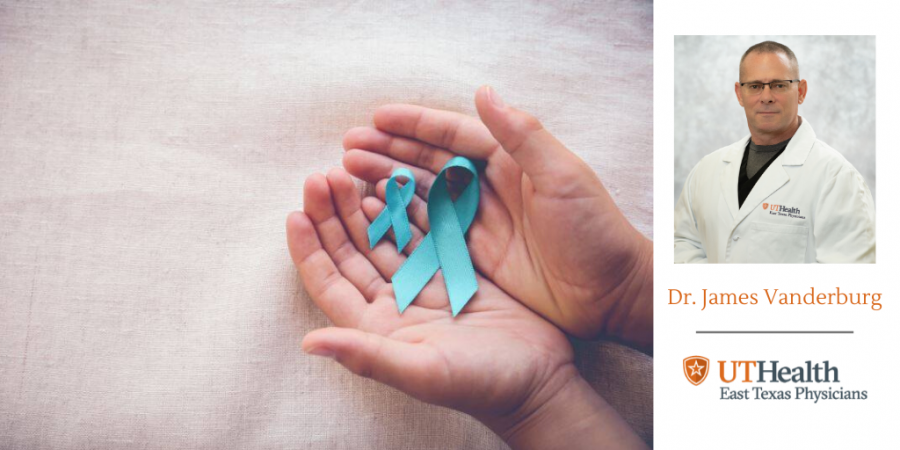
January has been designated at Cervical Cancer Awareness Month by the United States Congress. According to the National Cervical Cancer Coalition, more than 11,000 women are diagnosed with cervical cancer every year, but the disease is totally preventable with appropriate screening tests (Pap and HPV tests) and vaccinations.
What can you do to prevent cervical cancer?
A Pap smear is performed by your healthcare provider and can find cell changes to the cervix caused by the human papillomavirus (HPV). HPV tests determine if the virus and subtype are present and which women are at the highest risk for cervical cancer. Pap and HPV tests (either alone or in combination) are recommended for all women, usually beginning around age 20-25 years old.
Vaccines can help prevent infection from both low-risk HPV types that can cause genital warts and high-risk types that can lead to cervical cancer. The CDC recommends boys AND girls get the HPV vaccine at age 11 or 12 as the vaccine produces a stronger immune response when taken during the preteen years. If started before the age of 14, only 2 doses are required. However, for those individuals older than 15, a full three-dose series is needed.
HPV vaccines have routinely been shown to be safe, effective and the best tool for cervical cancer prevention. However, myths and rumors continue to pop up on the internet, social media and alternative health websites in order to scare people away from this method of prophylaxis. Here is a list of facts regarding the HPV vaccine that is supported by the medical experts at the American Cancer Society.
Fact 1: The vaccine is effective. Studies continue to prove that the vaccine can prevent HPV infections in both boys and girls. Since HPV is known to cause cancer in men and women, the vaccine can help prevent these cancers in boys and girls when they get older.
Fact 2: The vaccine is safe. The HPV vaccine has been on the market for more than 10 years. More than 250 million doses of the HPV vaccine have been given worldwide, including 100 million doses in the U.S. Studies continue to show it is very safe.
Fact 3: The HPV vaccine is a series of shots for boys and girls. Like all vaccines, they are intended to prevent infections. Therefore, children should be vaccinated before being exposed. The HPV vaccine should be administered around the age of 11 or 12 to offer the most protection. The HPV vaccine is a series of two shots given six to 12 months apart. The vaccine works best if completed by age 13. Talk to your child's doctor about how the series of shots may be different if your child is 13 or older.
Fact 4: The HPV vaccine does not contain harmful ingredients. Some parents are worried about the vaccine containing aluminum. There is aluminum in the HPV vaccine, but it’s a safe amount. Aluminum has been used in vaccines for years and has been proven safe in numerous studies. We come in contact with aluminum every day in the foods we eat, utensils we use and the water we drink. Aluminum is even found in breast milk. The amount of aluminum contained in the vaccine is much less than the amount we are exposed to every day.
Fact 5: The HPV vaccine does not cause fertility issues. By preventing HPV infections and its consequences, the HPV vaccine can actually prevent fertility problems that are linked to cervical cancer.
Fact 6: The HPV vaccine lasts a long time – maybe forever. Vaccines cause your body to make antibodies, which help fight the virus when exposed. Antibodies give strong and lasting prevention and may even last for the rest of your life.
Your doctor or health care professional can be one of your most important resources for information and guidance. He or she can help clarify things for you.
Information provided by Dr. James T. Vanderburg, a gynecologist who practices at UT Health East Texas Physicians in Pittsburg. To schedule an appointment with one of our providers, call 903-596-DOCS or go online to UTHealthEastTexas.com.

